The Dark Reality Behind Dairy and Cow’s Milk Production
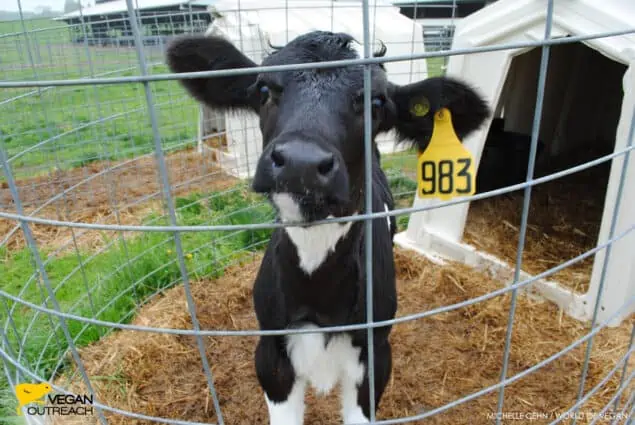
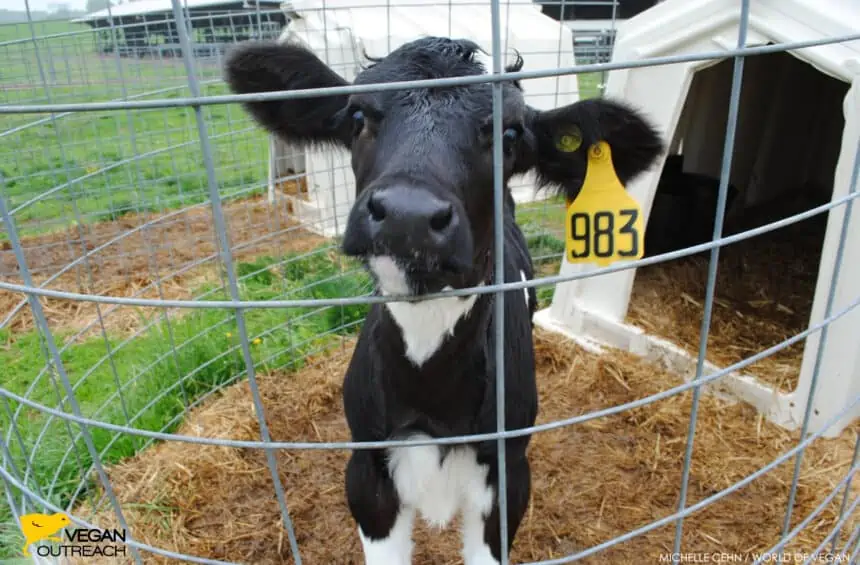
The dairy industry, notorious for its cruelty and exploitation, stands as a dark emblem within animal agriculture. Cow milk production, often portrayed as idyllic in commercials, conceals a tale of artificial insemination using a chilling term—the “rape rack,” intensive confinement, abrupt separation of mothers and calves, and eventual slaughter. This intricate web of suffering also fuels the veal industry, a grim byproduct of dairy practices.
Contrary to common belief, cows possess intelligence, social bonds, problem-solving skills, and intricate memories. Their emotional lives parallel those of our cherished pets. But behind the scenes, the truth about the dairy industry emerges.
Table of contents
- Dismantling the Myth of “Magical Milk Machines”
- A Cycle of Exploitation—From Artificial Insemination to Slaughter
- Mother-Calf Separation to Increase Milk Profits
- Not So Magical Milk Machines
- Excessive Milking and Premature Slaughter
- The Fate of Motherless Calves
- Male Calves: Disposable Lives
- What About Organic, Grass-Fed, Human, Local, & Family Farms?
- Is Cow’s Milk Worth the Cost?
- Choosing Compassion at the Grocery Store
- Have You Ever Met a Cow?
- A Cow’s Life in the Dairy Industry (Illustrated Video)
Dismantling the Myth of “Magical Milk Machines”
From childhood, we’re indoctrinated with the notion that cows are miraculous milk generators deserving of our efforts. The advertising narrative paints a picture of “Happy Cows” frolicking in lush pastures, perpetuating this facade. But it’s time to delve deeper and uncover the real story behind milk—the cornerstone of dairy products.
Within the dairy realm, two narratives intertwine: the plight of the mothers and that of their offspring. Let’s begin with the mothers.
A Cycle of Exploitation—From Artificial Insemination to Slaughter
Female cows, like humans and other mammals, produce milk to nurture their young. However, the commercial dairy sector strips cows of this natural experience of pregnancy and motherhood.
Artificial insemination serves as a harsh introduction to the dairy industry’s cycle of exploitation. Unlike the natural way to get pregnant, female cows within commercial dairy farms are subjected to an intrusive process that blatantly violates their reproductive system. This practice involves the manual insertion of semen into the cows, sometimes referred to in the industry as the “rape rack.” Such a term not only underscores the grim reality but also highlights the utter disregard for the natural order.
This invasive procedure forces cows into a perpetual cycle of pregnancies, denying them the right to choose their mates or control their reproductive destinies.
As sentient beings capable of forming social bonds and experiencing emotional depth, cows endure this violation amidst an environment that prioritizes profit over their inherent rights. The stark juxtaposition between this practice and their natural instincts emphasizes the profound ethical concerns that underpin the entire dairy industry.
Mother-Calf Separation to Increase Milk Profits
Just like human mothers, a female cow has a nine-month gestation period. And after giving birth, calves typically nurse from their mothers for 6 months or longer.
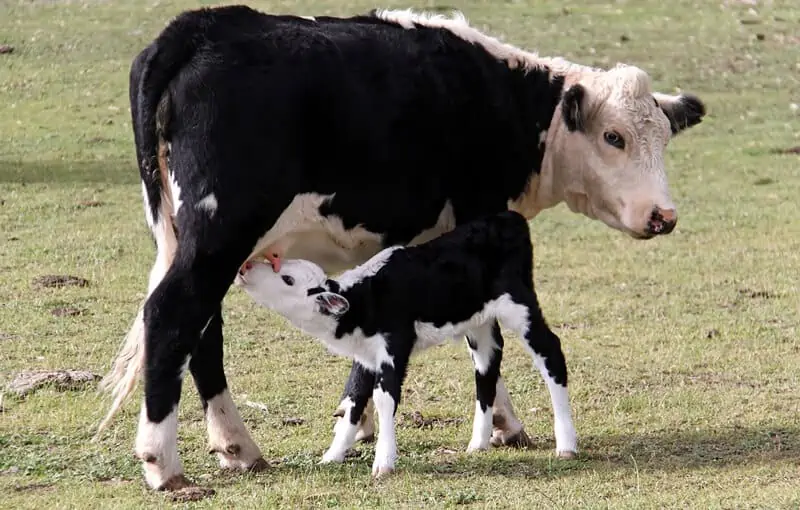
But in the dairy industry, once her calf is born, she’ll experience a mere day or two of companionship—sometime less—before her calf is forcefully separated from her to prevent the loss of even a drop of valuable milk, which would cut into the profits of the dairy industry. This is the last time the mother will see her baby.
Like most moms, cows have powerful maternal instincts and are extremely distressed when their babies are taken away from them. Their anguished bellows can be heard for up to a mile away. Some cows are so distraught that they will even stop eating.
You have to ask—is a bite of cheese really worth severing the bond between a baby and his mother?
Not So Magical Milk Machines
Post-separation, the mother cows are subjected to mechanical milking—a stark contrast to the nostalgic image of a farmer hand-milking a cow.
As soon as her baby is taken away, the mother will be hooked up to a milking machine to take the milk that her body made for her calf. In natural circumstances, nursing cows produces just 12 to 15 pounds of milk each day and calves nurse all day long.
But in the majority of today’s dairy operations, a mother cow will produce a staggering 50 pounds of milk daily. The pressure of her painfully loaded udder will only be relieved by mechanical milking twice a day, which often leads to mastitis and other excruciatingly painful conditions.
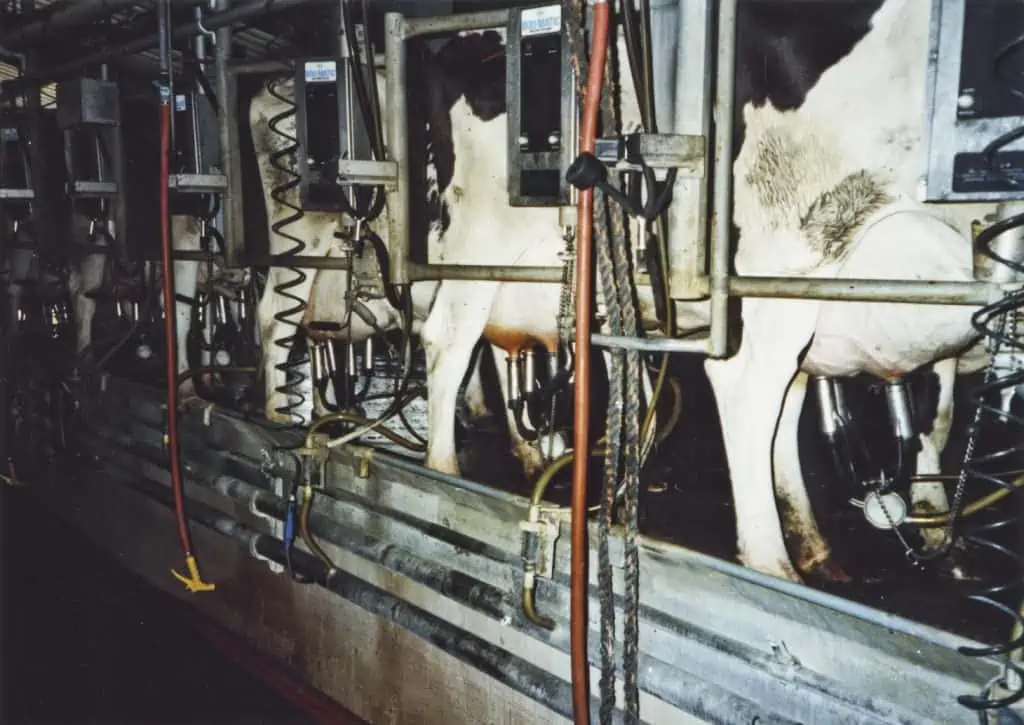
Excessive Milking and Premature Slaughter
Dairy cows undergo mechanical milking two to three times daily, forced to produce an unnatural tenfold increase in milk volume. As time progresses, milk production wanes, initiating a vicious cycle of repeated artificial impregnation, bereavement, and mechanical milking.
This cycle persists yearly until these cows meet a grim fate—slaughtered as adolescents, their natural lifespan of 25 to 30 years cut short. Their bodies, devoid of milk-production utility, are often processed into meat products, most likely burgers.
The Fate of Motherless Calves
Shifting focus to the offspring, USDA statistics reveal that 97 percent of calves are separated from their mothers within the first 12 hours of birth.
Female calves, like their mothers, confront a bleak fate. Denied maternal nourishment, they are confined in solitary and often cramped pens, where they have no way to find comfort or nurse from their mother. Replacing mother’s milk with a formula, they endure this existence for 6-8 months, foregoing a natural upbringing characterized by play, bonding, and freedom.
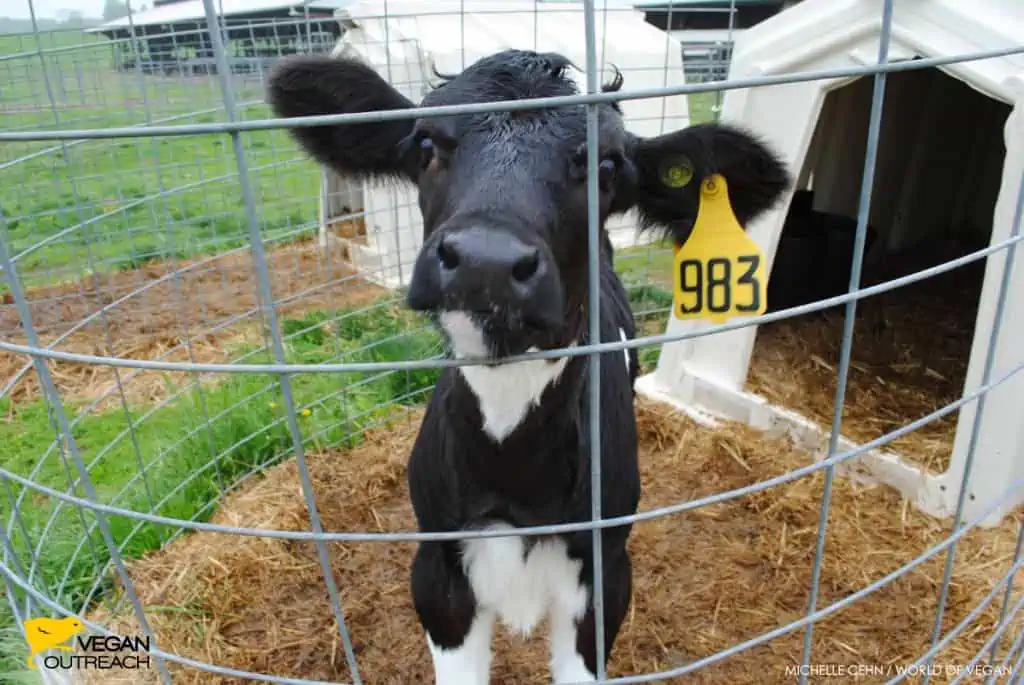
Once fertile, the cycle of forced impregnation, grief, mechanical milking, and eventual slaughter begins anew.
Male Calves: Disposable Lives
Keep in mind that 50 percent of the babies born will be male, and a male calf has little financial value to the dairy industry because he’ll never produce milk. In most situations he’ll either be kept and raised for beef, slaughtered immediately for cheap veal, or sent to a torturous facility to become higher priced veal.
On a veal farm the baby calf will be confined in a small space in which he can barely move and fed an iron-poor diet until he becomes severely anemic. His muscles will atrophy, and at just a few months of age, he’ll be slaughtered. His tender, pale flesh will be sold as veal.
The veal industry is widely condemned for its cruelty, yet its roots intertwine deeply with the dairy sector. The undeniable link between these industries exposes the extent of their intertwined suffering.
What About Organic, Grass-Fed, Human, Local, & Family Farms?
You may be surprised to learn that these marketing buzzwords you might see on meat, dairy, and egg labels don’t guarantee better lives for the animals. The mechanics remain the same, including the unavoidable separation of baby from mother, painful surgical mutilations without anesthetic, factory-style milking, and premature slaughter.
These terms, designed to attract compassionate consumers, fail to dismantle the core mechanisms of exploitation.
Is Cow’s Milk Worth the Cost?
Considering the immense suffering, is the fleeting gustatory pleasure of cow’s milk truly worth it? The array of delicious, plant-based alternatives renders this question obsolete. Opting for both taste and compassion aligns with our evolving food landscape.
Today’s food system leaves a trail of devastation not only within our bodies but also within the lives of countless animals. It’s imperative to champion kindness and sustainability by embracing plant-based alternatives.
Choosing Compassion at the Grocery Store
Our grocery choices equate to votes for the world we desire. While personal, these choices transcend the individual, impacting the lives of others. Opting for animal-based dairy entails contributing to a continuum of suffering, regardless of slight variations between factory-farmed and family-farmed practices.
But today a beautiful bright world of plant-based dairy options exist, and most are also better for human health and the sustainability of our planet.
Awareness fuels change. Acknowledging one’s past contributions to cruelty ignites a journey toward more humane choices. Armed with knowledge, we navigate a path of greater compassion, for when we know better, we can genuinely do better.
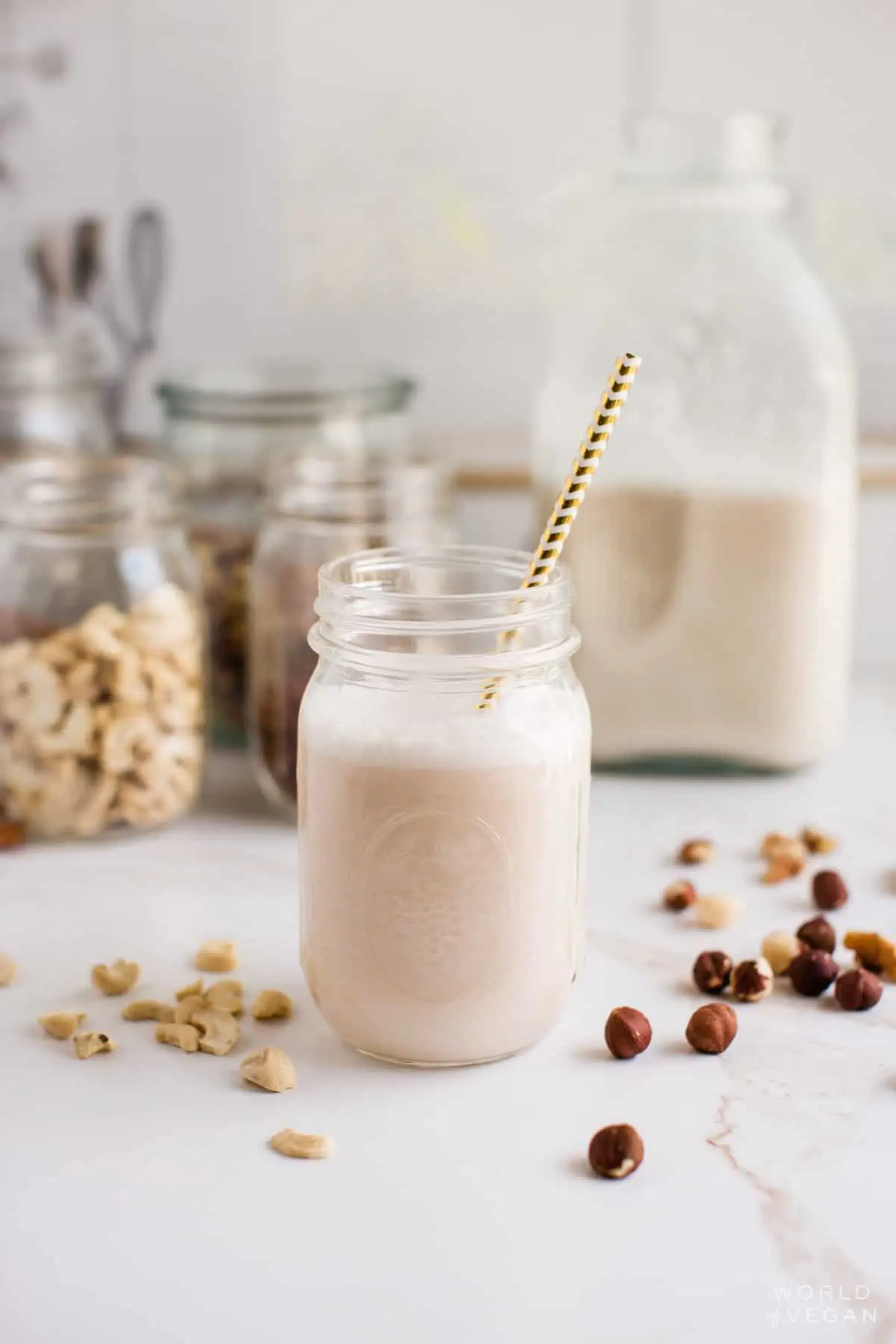
Have You Ever Met a Cow?
Despite the fact that almost all of us grew up drinking milk, few of us have ever met a real live cow.
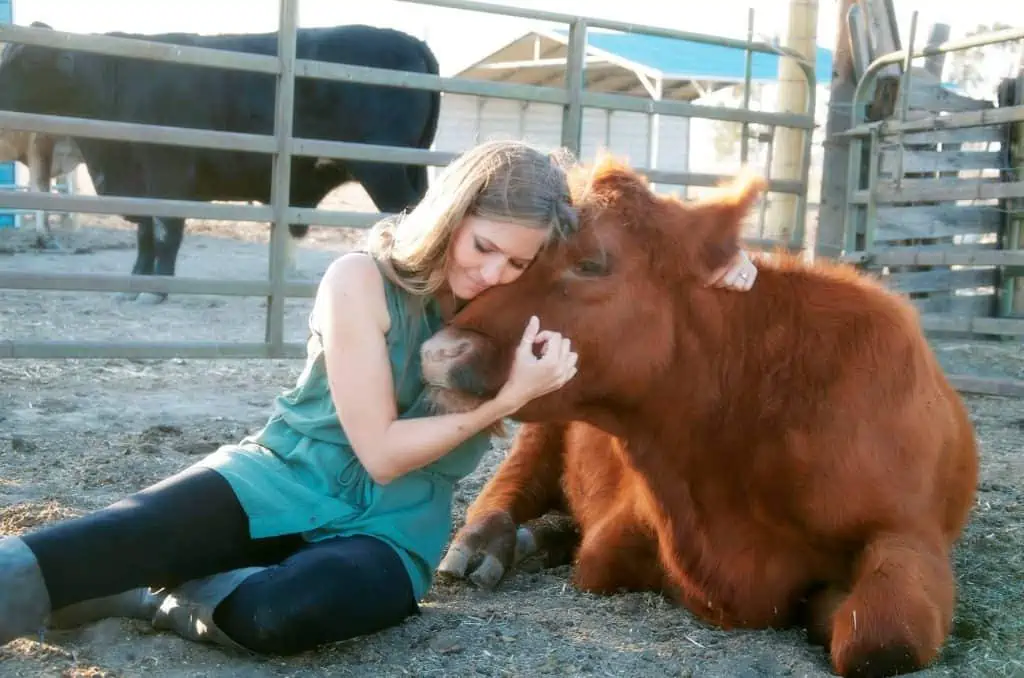
Farm sanctuaries around the world offer a heartwarming haven where individuals can intimately connect with cows and various other animals, unearthing a world starkly different from the industrialized farming landscape. These sanctuaries provide a unique opportunity to witness the intrinsic beauty of cows’ emotional lives as they forge relationships, display intelligence, and express their unique personalities.
By interacting with these animals in a compassionate setting, visitors gain a profound understanding of their individuality and the innate desire for care and companionship. Through guided interactions and educational programs, farm sanctuaries foster empathy and awareness, inspiring a new generation to embrace cruelty-free choices and advocate for the welfare of animals everywhere.

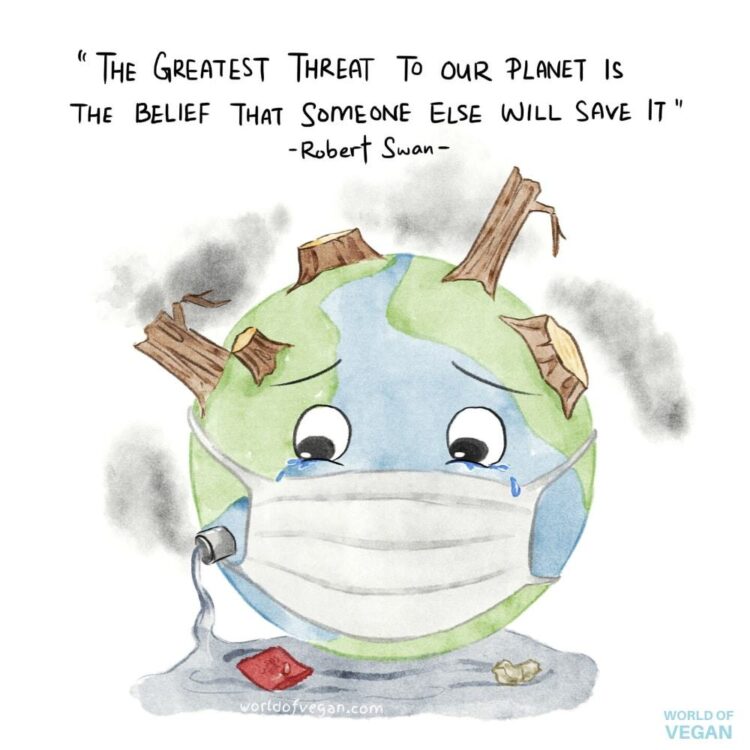
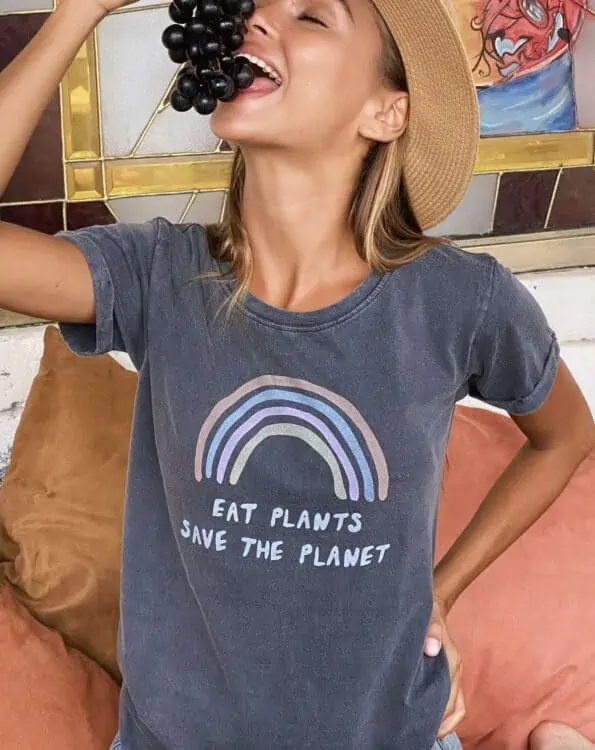
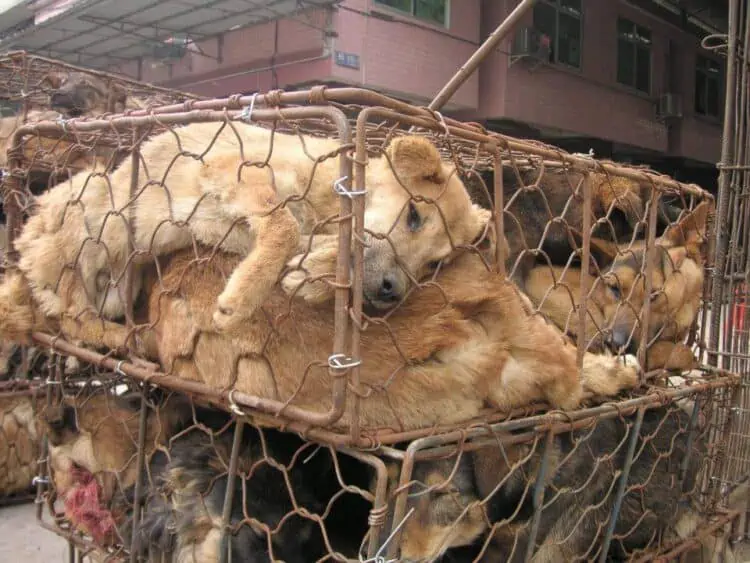
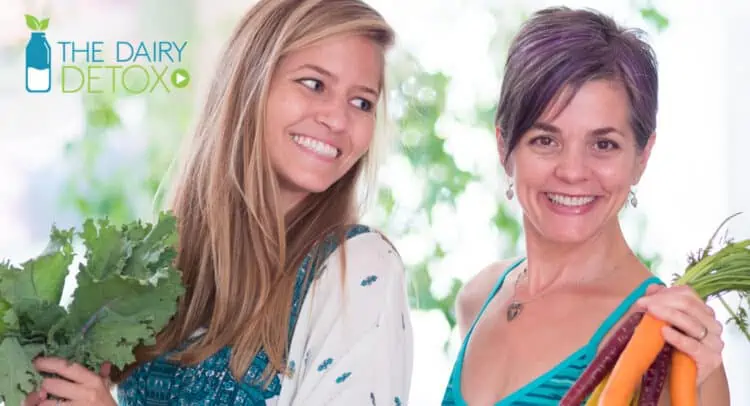
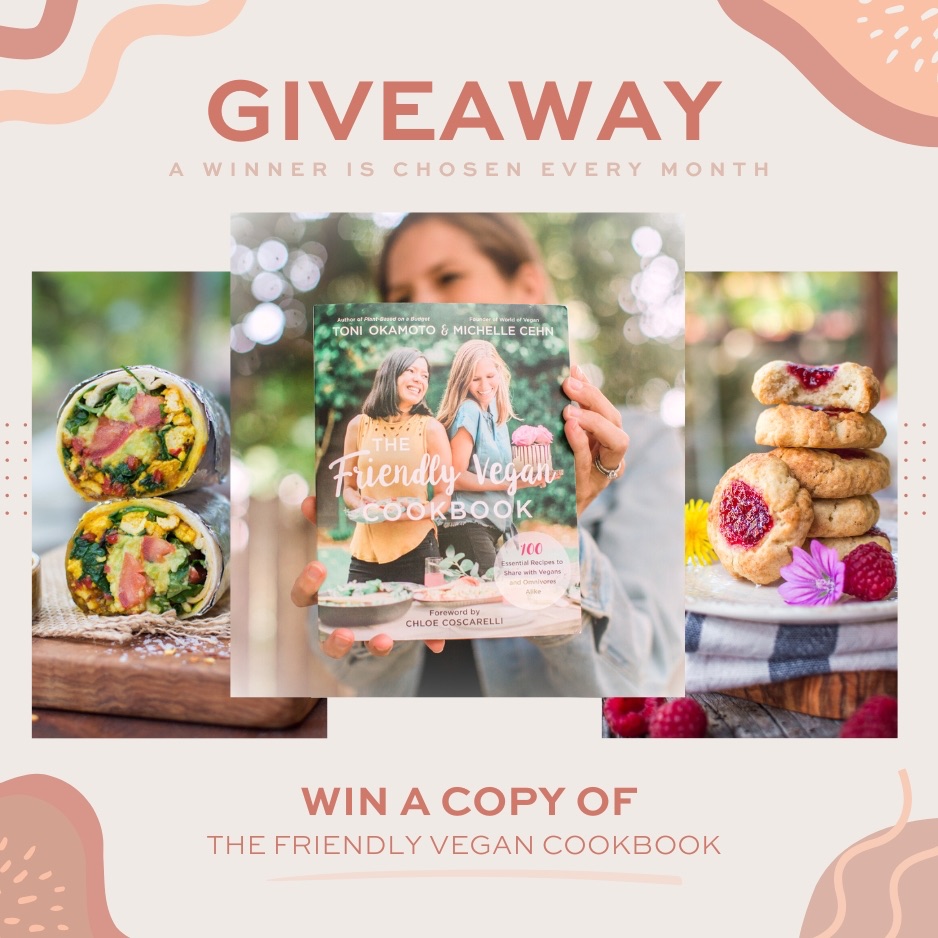
Leave a Comment
Such an important article!
I totally agree, Toni!
The podcast you and Toni did with Marji about adoption where she spoke about her mama cow story has stuck with me since listening. Hoping everyone can shift their perspective on the dairy industry ASAP.
Thank you so much for sharing this, Andrea! I know Toni and Michelle will be glad to hear it!
Its so sad to see what is done to animals for others benefits!
It really is 🙁
When I first became vegan, I read this article and just cried and cried. Especially being a mother who breastfed her children. I felt a deep and immediate sadness and compassion for cows. It’s heartbreaking and I wish more people knew the truth 🙁
I wish more people knew about the reality of the dairy industry! Just because cows can make milk doesn’t mean it’s for us or that they’re treated nicely.